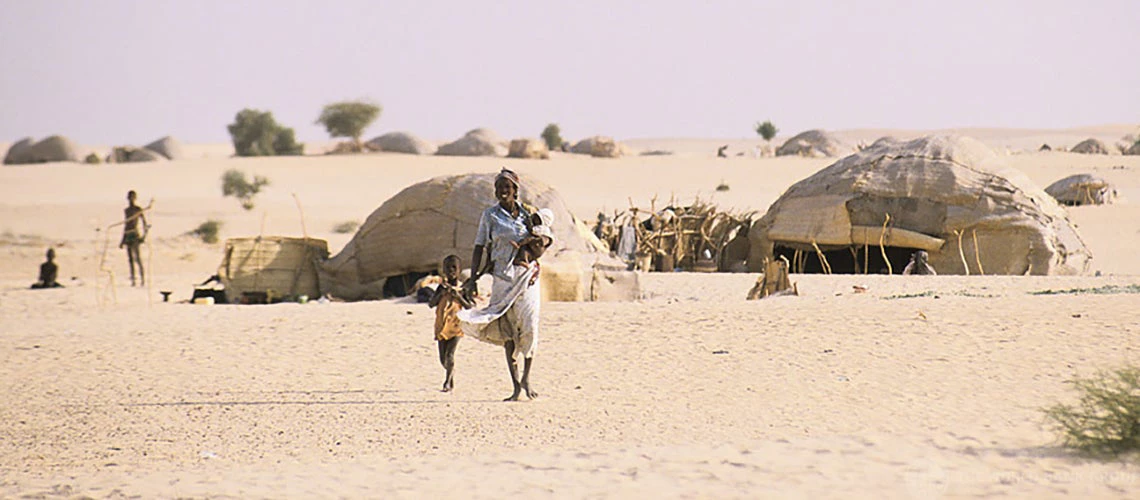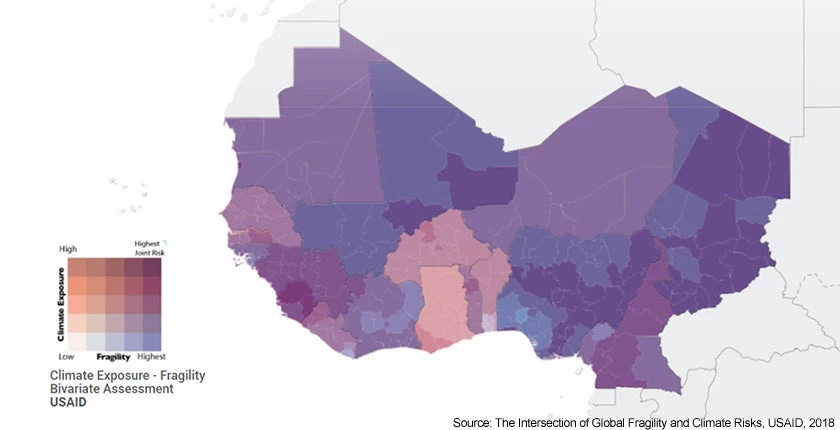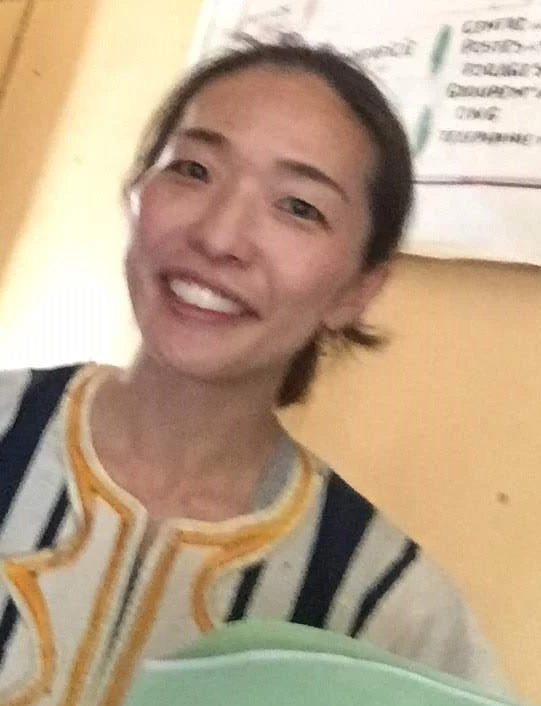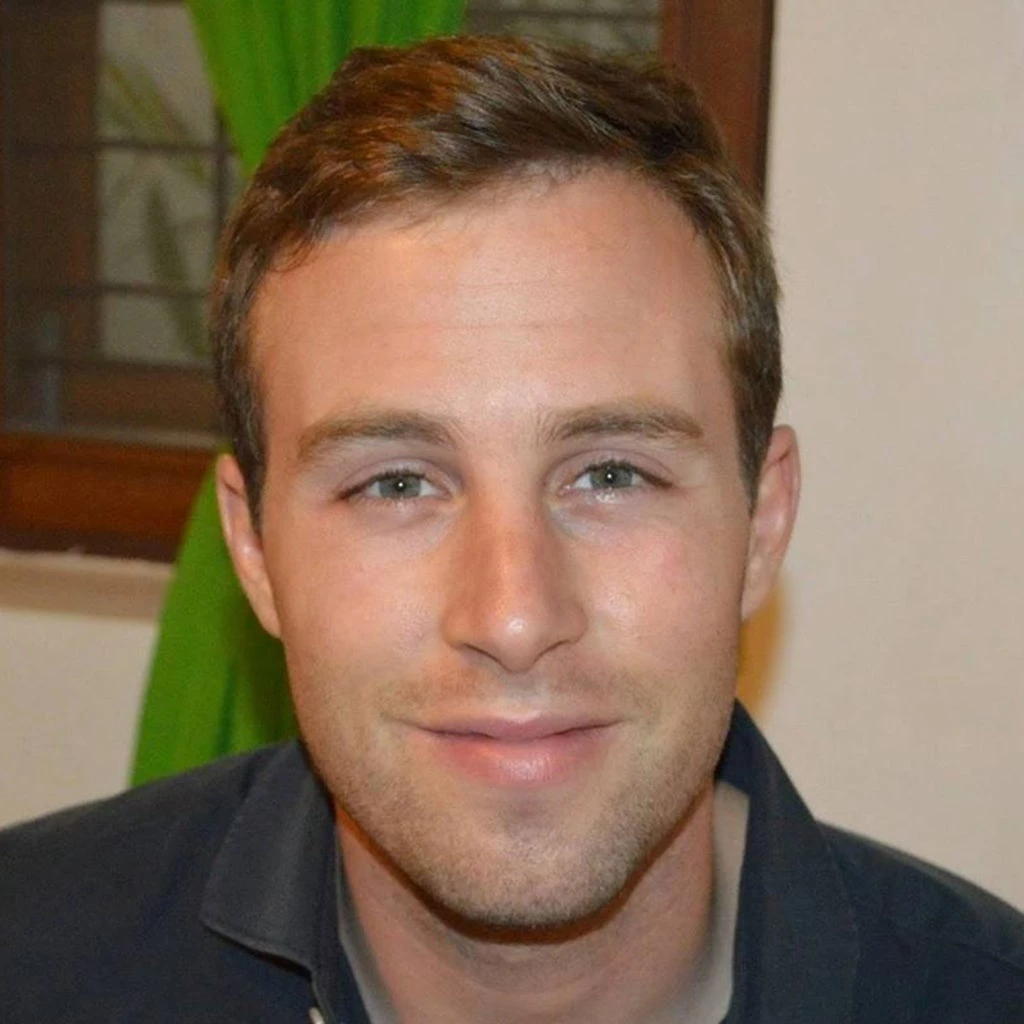 Mother and child in Mali. (Photo: Curt Carnemark / World Bank)
Mother and child in Mali. (Photo: Curt Carnemark / World Bank)
Across the globe, violent conflict is on the rise, with many conflicts today waged between non-state actors such as political militias, criminal, and international terrorist groups, and this especially in Africa’s crisis hotspots, such as the Lake Chad and Sahel Region. The mounting impacts of climate change are also hitting countries hard, affecting the poorest and most vulnerable. Many have been forced to migrate, while others face challenges related to accessing food and water and livelihood security, issues that have been exacerbated as the COVID-19 pandemic continues to devastate communities and economies. As a result, a growing number of countries are confronted with complex, multi-dimensional crises amplified by the dual threat of fragility, conflict, and violence (FCV) and climate-related risks.
West Africa has notably been confronted with these intersecting challenges. In recent decades, the region has experienced a rise in mean temperatures, a decrease in precipitation, and an increase in drought and flooding. Over 2.3 million people in 18 West and Central African countries have been affected by flooding—more than double the 1.1 million people impacted last year. Similarly, the frequency of drought has increased dramatically in the region, from an average of once every 12.5 years between 1982 and 2006 to once every 2.5 years between 2007 and 2016. They have also become more severe and prolonged, diminishing the land’s productive capacity. Regional models suggest that this is only likely to worsen.
Over roughly the same period, West Africa has also witnessed a substantial rise in political violence. The past five years have been the most violent on record, with over 12,000 conflict events and 50,000 fatalities through June 2019.
In Guinea, some 64 % of the population lives in areas of high compound fragility and climate risk. Some of the most vulnerable of the population, including women, youth, and persons with disabilities, regularly experience hazard events including extreme temperatures, rain, flooding, drought, and rise in sea-level. Similar hazards are at play in the Lake Chad region, which encompasses Chad, Niger, Nigeria, and Cameroon. These stresses compound the challenges for governments in the region to respond effectively to a complicated set of interrelated drivers of FCV. In Guinea, youth unemployment is expected to have significantly risen as a result of the COVID-19 crisis. Before the crisis, weaknesses in the delivery of services often undermined the Guinean government’s legitimacy. Across the Lake Chad region, vulnerable groups are exposed to high inequality, perceived social injustice, a lack of social service provision, and inadequate economic opportunities. All of these serve as drivers of FCV - and climate risks are likely to make them worse.
The result is a “conflict trap” wherein the impacts and added stresses of a changing climate aggravate the political and economic conditions that gave rise to the fragility and violent conflict in the region first place, while creating new risks which increasingly fragile systems struggle to manage.
To address the intersectionality of disaster and FCV risks in Guinea and the Lake Chad Region, the World Bank has begun to pilot new ways of supporting partnerships between local communities and governments to address climate security. With support from the Global Facility for Disaster Reduction and Recovery (GFDRR) and the International Institute for Environment and Development (IIED), the Bank has partnered with the governments of Guinea, Cameroon, Chad, Niger, and Nigeria to develop an innovative “Participatory Local Development” tool for climate, disaster, and FCV risk identification and response.
The initiative fits within the World Bank’s objectives to promote a whole-of-society approach to understanding and addressing these compound challenges. Through working with national and local governments, civil society, and communities, the Bank works to strengthen resilience by creating opportunities to thrive.
The Guinea/Lake Chad pilot tool aims to empower local communities and institutions by providing those closest to climate and FCV challenges with a toolbox to identify, plan, and respond to current and potential future risks themselves. The tool’s key principles for identifying and responding to risks are helping communities better understand the relationship between climate change, social equity, and FCV, empowering them to develop their own plans for adaptation and to manage risks, integrating local knowledge into planning activities, helping the most marginalized groups (such as women, youth, persons with disabilities), and engaging communities in climate decision-making.
By applying the tool at each stage – from preparation and identification to validation and implementation – communities are better able to integrate climate, disaster, and FCV considerations into their plans for development. Deciding on the location of community markets by integrating climate risk into planning can ensure that when storms strike, these vital services are not as affected. This builds resilience of the community and investments.
Together with our government counterparts, we look forward to further testing and adapting this tool in the context of the Guinea Support to Local Governance Project and the recently approved Lake Chad Region Recovery and Development Project. Looking ahead, we expect the tool to demonstrate new operational ways of working on the Disaster Risk Management (DRM)-FCV nexus by promoting dialogue between the climate change, DRM, conflict-prevention, and peacebuilding communities in West Africa and research on the intersections of these areas. While West Africa is a prime example of the manifestation of multiple, intersecting crises, this challenge is not unique to the region. Today, persistent climate, FCV, and health crises are a reality for governments and communities across the globe.
The hope is that the tool can ultimately serve as a model for integrating our response to crises not just in West Africa, but across the world.






Join the Conversation